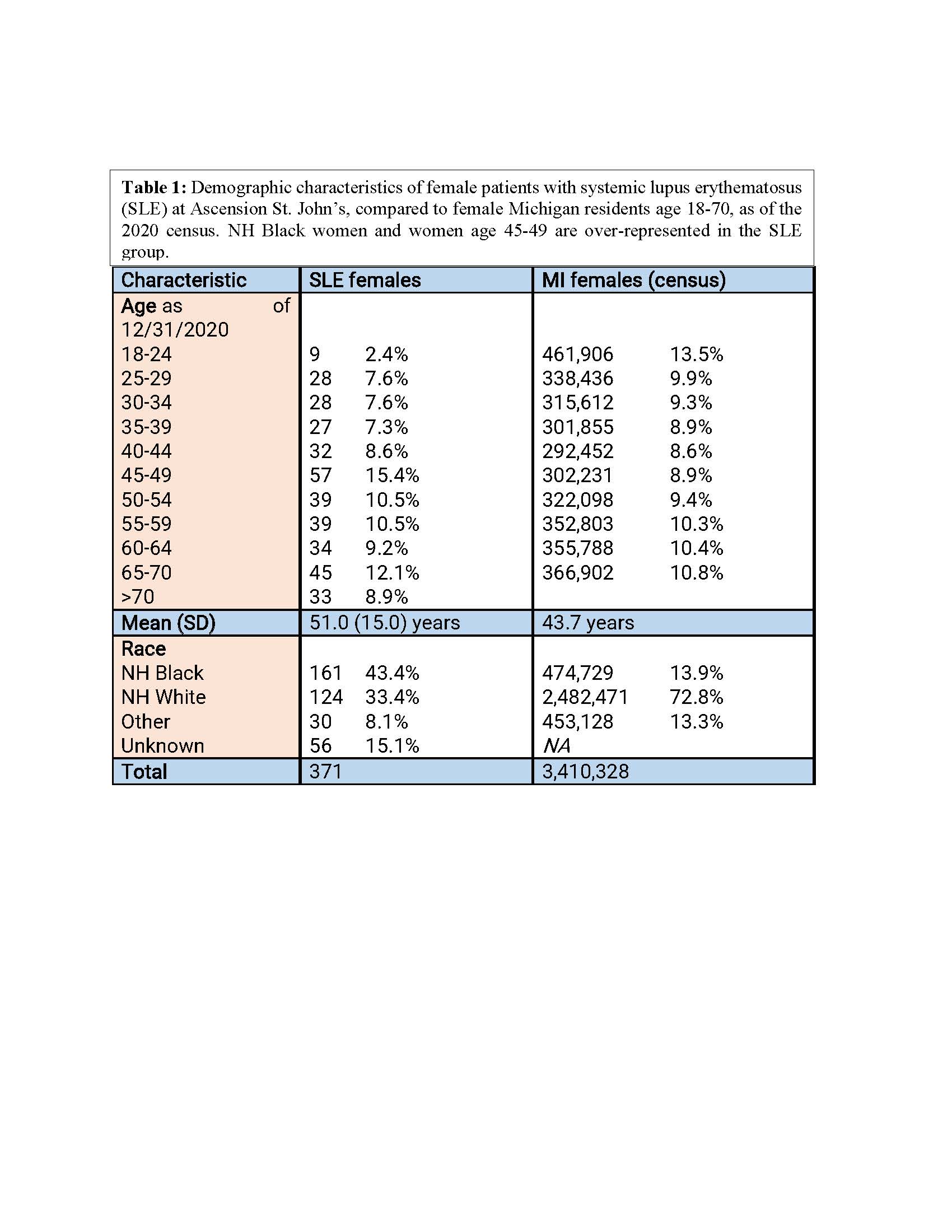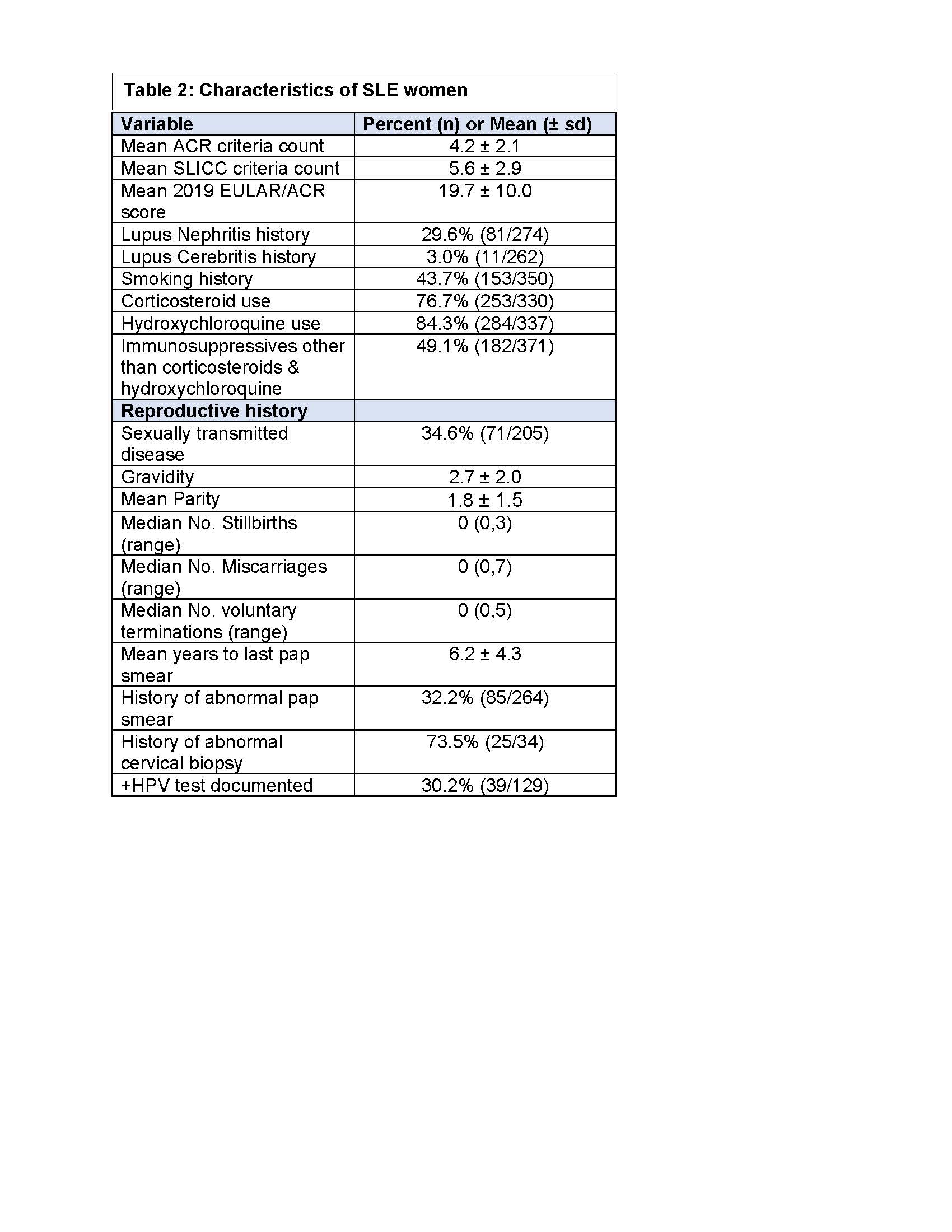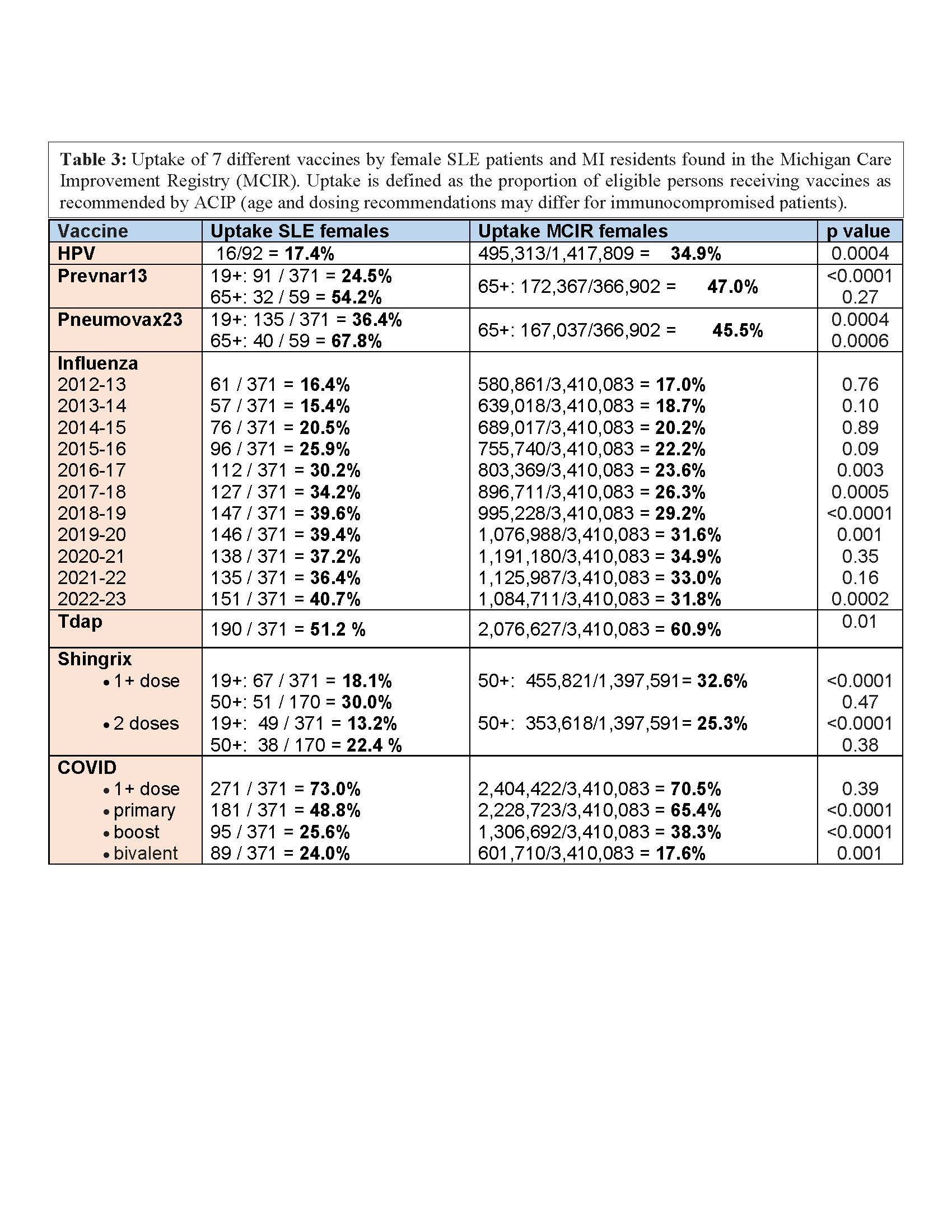Session Information
Date: Tuesday, November 14, 2023
Title: (2257–2325) SLE – Diagnosis, Manifestations, & Outcomes Poster III
Session Type: Poster Session C
Session Time: 9:00AM-11:00AM
Background/Purpose: Infections are a major cause of morbidity & mortality in patients with systemic lupus erythematosus (SLE), including vaccine-preventable infections. SLE patients are considered to be immunocompromised & thus fall into the Advisory Committee on Immunization Practice’s (ACIP) immunosuppressed category. Vaccines for influenza, pneumococcus, pertussis, varicella, & HPV are safe & immunogenic in patients with SLE. Despite the availability of vaccines, vaccine uptake has been generally low in this population, with one reason being that physicians fail to recommend them. We sought to assess vaccine update in SLE patients seen in our large Detroit area community hospital compared to that of the adult Michigan Care Improvement Registry (MCIR) population. MCIR is an immunization database that documents immunizations given to Michigan residents.
Methods: We performed a retrospective chart review of adult patients ages 18-70 with SLE who received care at Ascension St. John Hospital to obtain clinical information on SLE. ACR, SLICC, and 2019 ACR/EULAR criteria were used for the diagnosis of SLE. Comparison of vaccine rates of the Ascension St. John SLE cohort recorded in MCIR & the overall adult MCIR population were performed. Vaccine target goals for the SLE & adult MCIR populations were as per the CDC/AICP recommended vaccine schedule for immunosuppressed and immunocompetent persons. Deceased SLE patients and males were excluded from the analysis for both groups since there were very few male SLE patients to allow for comparison.Data were analyzed using the chi-squared test.
Results: The study groups included 371 SLE women & 3,410,328 Michigan (MI) females. The mean age was slightly older for SLE (51.0 yrs.) vs. MI females (43.7 yrs.), with Black women ages 45-49 yrs. over-represented in the SLE group (Table 1).The SLE group characteristics are seen in Table 2 based on available documentation. Most were on immunomodulatory drugs, ̴ 1/3 had history of lupus nephritis, almost 1/2 had history of smoking, ̴1/3 had a history sexually transmitted diseases, & ̴1/3 had abnormal pap smears. Target vaccine uptake in the SLE group was statistically lower than the MCIR population for HPV, Prevnar13, Pneumovax 23, Tdap, Shingrix®, the COVID primary series completion (#1&2) and booster shot (#3). Similar uptake rates were seen for both groups for Prevnar 13 after age 65, influenza (some years), Shingrix after age 50, & and the first dose of COVID vaccination. (Table 3). Vaccine uptake for SLE women was higher than the MCIR population for pneumovax 23 after age 65, influenza during some years and the bivalent COVID booster.
Conclusion: Vaccine uptake in women with SLE was subpar for most of the adult vaccines recommended for immunosuppressed persons. A gap exists with respect to vaccination for HPV, Pneumococcus (Prevnar13, Pneumovax 23), Tdap, Shingrix®, the COVID series & booster completion where uptake was lower for SLE women. HPV-related cervical disease and serious infections are preventable morbidities in these high-risk women. Increased awareness of the importance of these vaccinations for women with SLE is needed, particularly in childbearing years.
To cite this abstract in AMA style:
Dhar J, Forsythe H, Saravolatz L, Szpunar S. Vaccine Uptake in Women with Systemic Lupus Erythematosus (SLE) – Study Update [abstract]. Arthritis Rheumatol. 2023; 75 (suppl 9). https://acrabstracts.org/abstract/vaccine-uptake-in-women-with-systemic-lupus-erythematosus-sle-study-update/. Accessed .« Back to ACR Convergence 2023
ACR Meeting Abstracts - https://acrabstracts.org/abstract/vaccine-uptake-in-women-with-systemic-lupus-erythematosus-sle-study-update/



